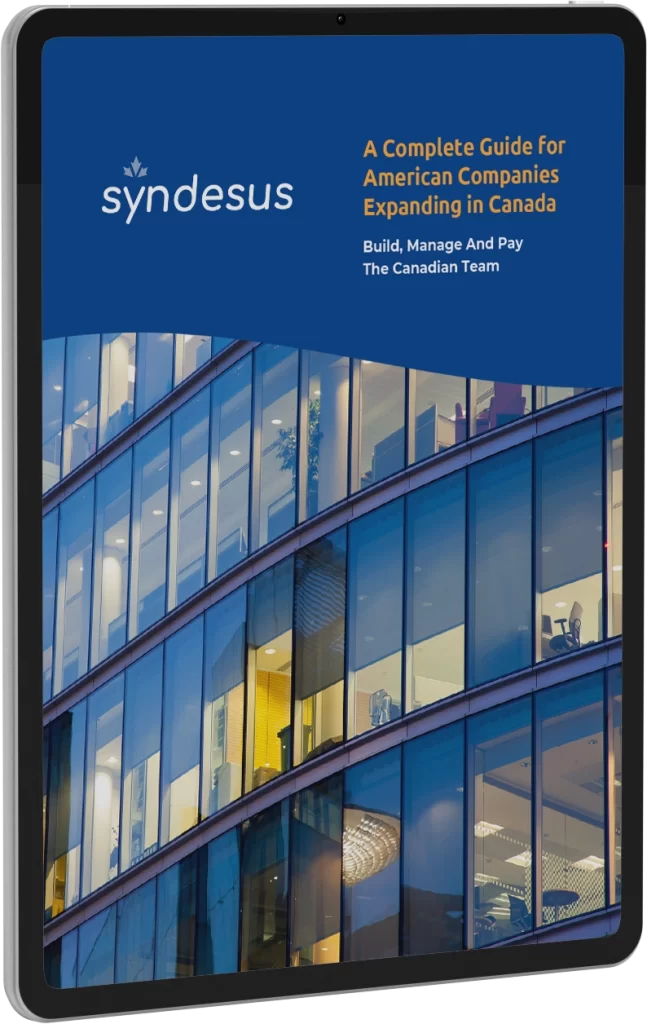After more than 27 years, the North American Free Trade Agreement (NAFTA) was replaced by a new trade deal among North American countries – the Canada-United States-Mexico Agreement (CUSMA).
On July 1, 2020, the new trade deal — which is called the United States-Mexico-Canada Agreement (USCMA) in the US — entered into force to prevent the disruption of important trade relationships among Mexico, Canada, and the US The deal also modernizes rules that were put in place in 1994, and have since been affected by new technologies.
The North American free-trade framework had largely eliminated tariffs on trade between the three North American countries.
The US, Canada, and Mexico are heavy trading partners, which means many companies rely on duty-free trade under the CUSMA to sell their goods and buy supplies.
So the new version of the trade deal is expected to deliver a bump to all three economies. It’s also expected to increase the number of jobs in Canada, and ease the immigration for some US and Mexico workers.
So, here’s everything you need to know about the CUSMA and how people can use it to work remotely in Canada.
CUSMA basics and key changes from NAFTA
Overall, NAFTA and CUSMA are far more alike than they are different.
But CUSMA does update the 26-year-old NAFTA with new laws that address new technology, like the internet, intellectual property, and investment, to name a few.
Here are just a few of them.
Cross-border copyright
CUSMA extends the terms of copyright to 70 years beyond the life of the author (up from 50 years).
The deal also adds new provisions for the digital economy, including protections for US internet companies so they’re not liable in Canada and Mexico for the content their users produce.
Physical products and manufacturing
The agreement issues guidance on a diverse range of issues, from cheese to auto manufacturing.
CUSMA requires 75% of a vehicle’s parts to be made in one of the three countries in order to benefit from tariff-free importing between the three countries.
The agreement also provides $600 million to address environmental problems and opens up the Canadian market to US dairy, poultry, and eggs.
Labor protection and enforcement
NAFTA’s original labor provisions were added as side letters after the original agreement was signed, but CUSMA has moved these chapters to the main body of the trade agreement. Labor issues — like the right to organize — are now subject to the pact’s normal procedures.
CUSMA expands on labor commitments by requiring more protections for workers and blocking imported goods that were made with forced labor. The deal also sets up mechanisms to ensure that these rules are enforced.
Interestingly, the CUSMA added a “sunset clause” that means the terms of the agreement will expire — or “sunset” — after 16 years. Every six years, the deal is also subject to review, which gives Canada, Mexico, and the US an option to extend the CUSMA.
So what does this mean for cross-border migration and employment?
How people can use CUSMA to work across North American borders
The primary purpose of the CUSMA is to easily allow goods and services to move across North American borders.
The agreement also allows citizens of the US and Mexico to easily enter Canada to promote fair competition and increase investment opportunities.
In order for cooperation between these three countries to grow, workers must have access to each other’s country to sell, provide goods or services, or trade and invest.
Citizens of the US or Mexico can enter Canada temporarily for work that involves investment or the trade of goods or services.
There are four types of workers who are included under the CUSMA:
- Business visitors who are working in a number of industries, including research, design, and manufacturing, are allowed to carry out their activities without the need for a work permit.
- Professionals who enter Canada to work as salaried employees of a Canadian business, or as contract workers for an American or Mexican company that has an agreement with a Canadian business. These professionals are not subject to the Labour Market Impact Assessment (LMIA) process, which tests the local labor market prior to granting work authorization, but they do need a work permit.
- Intra-company transferees who are employed by an American or Mexican company and are being transferred to the Canadian enterprise, branch, or affiliate in an executive role or to provide specialized knowledge. Like the previous category, these intra-company transferees are also exempt from the LMIA but need a work permit.
- Traders and investors who either facilitate substantial trade between the US and Canada or Mexico and Canada, or have a substantial amount of capital invested in Canada. Trader and investors are also not subject to the LMIA but need a work permit,
Business visitors are exempt from getting a work permit to work in Canada, but professionals, intra-company transferees, and traders and investors must obtain work permits through a special application process. Fortunately, workers in all categories are exempt from needing an LMIA, which eases the entry process.
Canadian and Mexican Workers can also head to the US with the help of the trade agreement.
The special economic and trade relationships created by the CUSMA allow Canadian and Mexican citizens to enter the US under the TN visa.
TN visa applicants must have a job offer from a US employer for a role that can be found on a list of 60 professions.
Among the types of professionals who are eligible for a TN visa are accountants, engineers, lawyers, pharmacists, scientists, and teachers. The applicant must then prove that they possess the qualifications, including education and experience, to meet the demands of the job.
The TN visa application process is complicated, and the rules are different for Canadian and Mexican citizens. But once approved, the TN visa is good for up to three years but employers can file for an extension upon expiration.
Syndesus can help you navigate the CUSMA process
As many Americans moved out of the US during the Trump administration and as COVID has sent still more Americans up North to work remotely, CUSMA has been instrumental in that relocation.
But the reality is that MANY Americans either don’t know that they can move to Canada for work, or don’t have a company that’s able to sponsor them.
That’s where Syndesus comes in.
Syndesus can help you relocate to Canada and continue to work for your American employer. And if your US employer doesn’t have a Canadian office, no problem.
As an employer of record (EOR), Syndesus can legally hire you on behalf of your US employer.
We take care of the billing, HR, legal and other paperwork, and you come to work, in Canada, just the same!
And if you want a new job in Canada, Path to Canada, a service provided by Syndesus, can match you with Canadian tech jobs that are open to sponsoring and hiring non-Canadians.
Reach out to us to learn more about how we can help you work remotely for a US tech company from Canada, or join our Path to Canada database of qualified candidates seeking to move to Canada and get matched with a Canadian tech employer!

